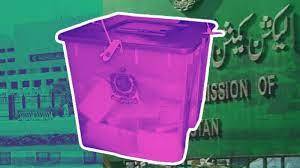
In the realm of politics, a familiar cycle unfolds: while children aspire to become doctors, engineers, or civil servants, politicians often strive to hold others accountable while exempting themselves. This perpetuates an endless circus of accountability, where each government introduces its mechanisms to punish opponents without adhering to standard procedures to combat corruption.
One such mechanism, the Public Representative Officers Disqualification Act (PRODA), was enacted by Liaquat Ali Khan in 1949, a mere four months after the demise of Quaid-e-Azam. This legislation, effective from 1947, aimed to disqualify individuals from holding office or participating in politics, primarily targeting government critics.
However, it soon became a tool in the hands of figures like Governor General Ghulam Muhammad and Sikandar Mirza to stifle dissent. Notable political figures, including Hussain Shaheed Suhrawardy, Ayub Khuhro, Pir Ilahi Bakhsh, Nawab Iftikhar Mamdot, and Moulvi Fazlul Haq, fell victim to PRODA, yet corruption continued unabated.
Following its repeal before the formulation of Pakistan's first constitution in 1956, Ayub Khan introduced the Elected Bodies Disqualification Act (EBDA) in 1959, amidst the imposition of the first Martial Law. This act wielded as a weapon against political adversaries, resulted in the disqualification of prominent leaders for up to eight years, with Sheikh Mujeeb Ur Rehman among the casualties.
Notably, a provision within the act offered leniency to politicians who voluntarily retired from politics, further revealing its politically motivated agenda. The casualties of EBDA numbered nearly three thousand government officials, yet corruption remained unchecked. Both PRODA and EBDA were driven by motives of vengeance rather than genuine efforts to combat power abuse and corruption.
The 1965 conflict prompted Ayub Khan to seek reconciliation with the politicians he had previously targeted, underscoring the political expediency behind these acts.
In a bid to manipulate the 1970 elections held in both West and East Pakistan (now Bangladesh), Ayub Khan resorted to forming the Security Council and allocating substantial funds to pro-establishment parties in East Pakistan, such as Jamaat-e-Islami.
The aim was to undermine the Awami League, which emerged as the most popular party in East Pakistan. Despite winning 167 out of 300 seats, the Awami League was denied the right to form a government, paving the way for political unrest and eventual secession. General Zia seized power from Bhutto and declared martial law in July 1977, justifying his action as necessary under the circumstances. He announced that the elections would take place within three months, but postponed them indefinitely, citing the need for accountability.
Meanwhile, Bhutto was sentenced to death, which attracted sympathy and support for the PPP. To counter the PPP's growing influence, Zia held non-partisan local elections in 1985 with the aim of establishing a new political hierarchy based on ethnicity. Instead of dealing with bureaucracy, he also channeled development funds to politicians and used them for political purposes.
Similar to Ayub Khan's strategy, Zia founded the Muslim League to strengthen his political presence. General Zia amended the 1973 Constitution with the Eighth Amendment, giving the president the power to dismiss an elected government, thereby ensuring control over unwanted parties. In the 1980s, he founded the Islami Jamhoori Ittehad (IJI) to combat the PPP's potency. The PPP won the 1988 elections, but Benazir Bhutto faced a vote of no confidence in 1989 over alleged financial embezzlement. Her government was overthrown in 1990 on the charges of corruption, leading to assist the IJI in coming poll.
The Asghar Khan case exposed the distribution of millions of rupees among politicians to purchase their loyalty and form coalitions in the 1990 elections to counter the popularity of the PPP. Nawaz Sharif won the elections of 1990 with establishment support, but his government was ousted by President Ghulam Ishaq Khan in 1993.
Benazir Bhutto returned to power in 1993 but was disqualified by her elected president, Farooq Leghari, in 1996. Nawaz Sharif's tenure saw the beginning of corruption cases against the previous government, remodeling the Ehtesab Commission by Benazir Bhutto into the Ehtesab Bureau.
However, his government faced scrutiny after the Kargil conflict, leading to its ousting by General Musharraf in 1999. Musharraf via presidential ordinance established the National Accountability Bureau (NAB) in 1999, initially intended to quieten opponents.
Following governments, including the PPP in 2008-2013, PML-N in 2013-2018, and PTI in 2018-2022, employed the NAB provisions to target their political opponents. History depicted that the public institutions in Pakistan, including the police, judiciary, Election Commission and media, have often been ill-used by politicians and power circles in the name of accountability for political gains and victimization rather than public well-being.
In this scenario Nawaz Sharif and Imran Khan’s shifting fate, from hero to villain, reflects the volatile nature of Pakistani politics. The PML-N faced significant challenges during the 2018 elections, with many of its leaders disqualified or imprisoned, and media blackout was obvious.
Now, in 2024, Nawaz Sharif once again emerges as a hero of powerful circles while Imran Khan a villain. The elections of 2024 are rife with the allegations of institutional bias, media censorships, internet shutdowns and judicial interference, indicating a continuation of power manipulation. This turbulent history underscores the misuse and abuse of power in Pakistani politics, where accountability measures are often employed for political gains rather than fostering genuine governance and combating corruption.
The international community also foresees engineered elections, underscoring the persistent misuse of power. Unless and until this cycle of political victimisation in the name of accountability and anti-corruption ceases, Pakistan's aspirations for good governance, the rule of law, and public welfare will remain elusive.

